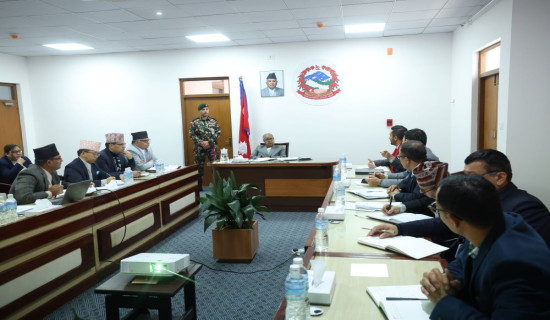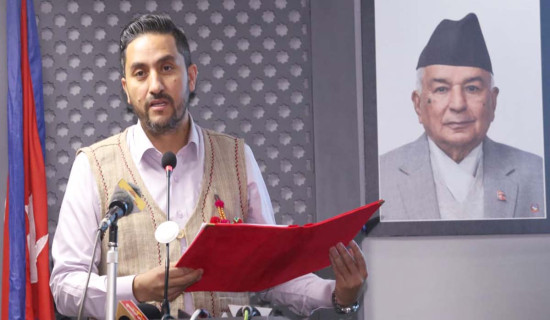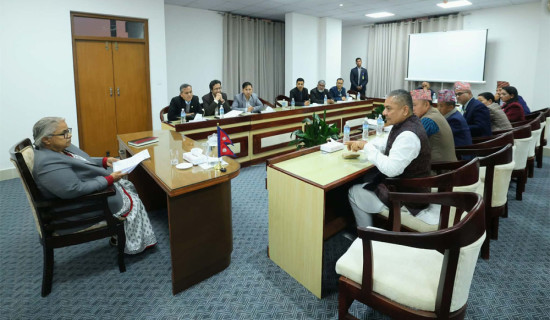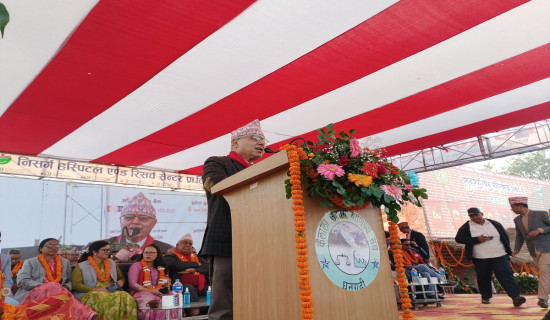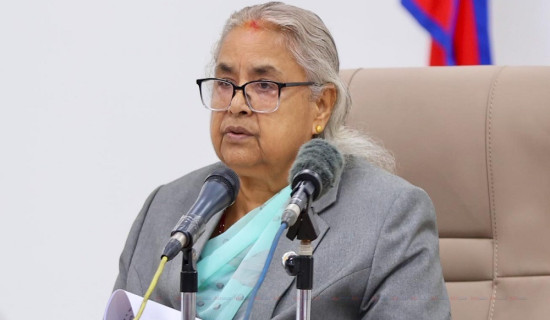- Tuesday, 9 December 2025
Mansarra: A Must-watch Masterpiece
Sometimes, you can tell what the movie is like by simply watching its trailer. Mansarra’s trailer itself was so compelling that I went to watch the movie on the very first day of its release. It’s not your usual movie with a plain storyline. It’s not predictable either. And these are the qualities that set this movie apart from the other Nepali movies. Directed by Upendra Subba, Mansarra explores the universal themes of women's vulnerability, tragedy, loyalty, and the stereotype behind infertility.
In a small neighbourhood on the outskirts of Kathmandu, there lives a family of two—husband and wife. The wife, a Newari woman, had married a Brahmin man who had broken the marriage with his first wife, blaming her for not being able to bear children. The second marriage is also not fruitful for the husband, as he comes to discover that his infertility was the reason why there were no children in both marriages. Playing the titular character of the husband, Dadhiram Pokhrel, is Praveen Khatiwada. The Newari wife (Menuka Pradhan) is portrayed as a daring woman who doesn’t hesitate to raise her hand at her husband.
According to the doctor, Dadhiram Pokhrel requires a large sum of money to be able to bear a boy, so he decides to take a loan from a shopkeeper—the same shopkeeper to whom he sells the milk produced on his buffalo farm. Reluctantly, the shopkeeper accedes to lending a chunk of money, but he requires more money, and thus he continues working diligently on his farm. Verbal exchanges and even fights are routine affairs in Dadhiram’s family. The only family to witness this tussle is Manrani’s. Manrani (Miruna Magar), whose house is adjacent to Dadhiram’s, ekes out her living by selling homemade alcohol, which is the only source of income that caters to the needs of her school-going boy.
Dahdiram, frustrated by the growing tension with his wife, starts finding solace in watching Manrani’s son. He fantasises about being a father to that little kid, and he even asks the kid to call him father. Dadhiram, having faced taunts from his own parents back in the village, now finds it pleasing to be called father by a small boy. Meanwhile, Manrani is oblivious to the progress between the kid and Dadhiram. To Manrani’s happiness, Dadhiram helps her out by secretly supplying the alcohol to the market on his motorcycle. Dadhiram’s wife doesn’t like him helping out their neighbor. Despite being neighbours, Dadhiram and his wife were unaware of Manrani’s husband’s whereabouts.
And slowly, the movie unfolds, going back in time to tell about Manrani’s past and her lover, Manhang Chemjong (Dayahang Rai), who had fled to the city after promising her to fetch her sometime later. The lover never comes, and having gotten pregnant with the boy, she was forced to leave the village to put away her family’s shame. Consequently, she becomes the neighbour of Dadhiram.
The movie takes us close to Limbu culture, something that has been barely documented in the Nepali movie industry. Praveen Khatiwada’s stellar performance as a lead actor is the main highlight of the movie. His realistic display of emotions shines throughout the movie. Dayahang Rai, playing the titular character of Manhang Chemjong, doesn’t disappoint us with his acting. Similarly, Miruna Magar couldn’t have done any better. Although Menuka Pradhan’s role in the movie isn’t multilayered, she has done more than enough to show what she was supposed to. The director, Upendra Subba, should not only be lauded for his directorial role but also for his short role as a driver in the movie. The dialogues, particularly those uttered by Praveen Khatiwada and Upendra Subba, resemble our everyday talk, making the movie more genuine and natural. Without any substantial plot twists, the story flows through diverse characters, connecting every dot by the end of the show.
The movie is a cinematic masterpiece, but it’s not without flaws. I personally feel that the reunion between Manrani and her lover in the end feels a bit contrived, although the happy ending serves to the audience's satisfaction. Dadhiram ’s parents finally accept that it’s not a crime to be infertile and that it is completely normal to not have children. The audience would have loved to know more about the chemistry between Manrani and Manhang Chemjong, but it is justifiable as the disconnection between them in the earlier phase is the major force that drives the narrative.
Overall, Mansarra’s presentation is top-tier, making it one of the best movies in recent times. It is the story of masculine power, women’s struggle, and the stereotype behind infertility. And above all, it is a story of love in the face of adversity.
(Gautam is a writer from Pokhara.)









